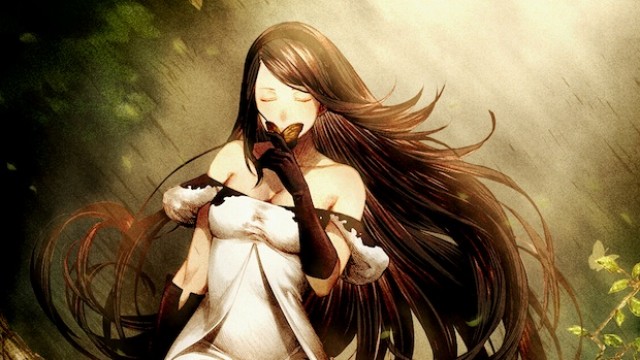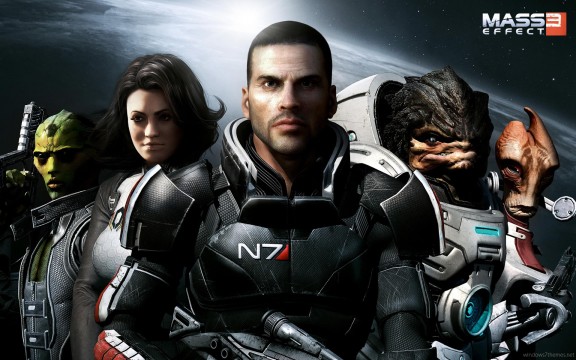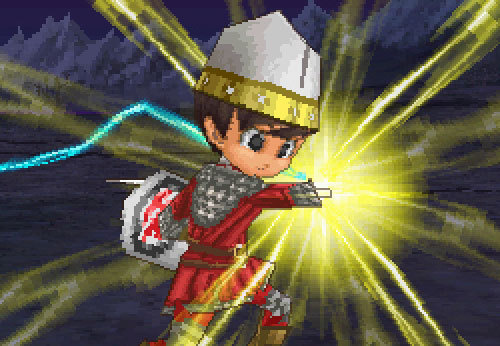
My first RPG was Super Mario RPG: Legend of the Seven Stars. I’ve touched on this in the past, but I grew up like many little kids with an SNES: obsessed with Mario, superhero, and licensed cartoon games. As a result (and to my shame), a lot of classic titles on the system like Super Metroid, A Link to the Past, and Chrono Trigger weren’t played by me until early adulthood. I just didn’t see the appeal, didn’t know what made them special (stop laughing, back there!). What can I say, kids don’t always know best, and I sure didn’t when it came to video games.
Mario RPG was like a lightning bolt in my mind the first time I saw it in the pages of Nintendo Power. Mario just looked so realistic! Rendered in 3D with that fascinating isometric game world, Mario RPG was as revolutionary to my eyes as Donkey Kong Country. I knew I had to play it, even if I didn’t know what the letters “RPG” meant. It was Mario like he’d never been before, and that could only be a good thing. When I finally did play Mario RPG, past-Robert was floored. It wasn’t about jumping on enemies and running around (though Mario certainly did do plenty of that in the game), it was about patience.
RPGs are a lesson in meditation. While it’s important that the game mechanics of battling and leveling up are engaging, the only way to derive satisfaction from an RPG is to commit to the inherently deliberate pacing of the genre. In a platformer or shooter (whether 2D or 3D) players are generally instantly gratified; run and gun, run and jump, always forward, always unrelenting. RPGs, on the other hand, touch the part of a person’s brain that facilitates more laid back activities like reading. It’s not that RPGs are unexciting, it’s just that they mete out entertainment in a different way.

For an RPG to be enjoyed, players have to accept that the satisfaction they’re looking for isn’t going to be coming at rapid fire. Battling is a good example of this, as whether randomly initiated or by touching a foe on the playing field, it needs to be done over and over. The term for this was long ago coined as grinding, and it’s as apt a descriptor as could have been made; RPGs make the player grind to better their party of characters. In my first playthrough of Mario RPG, I didn’t realize the importance of bulking up my team until later in the game, when enemies started becoming hardier. As I began seeking out encounters anywhere and everywhere I could to farm experience points, I started to learn just how fun it was to turn my party into a veritable powerhouse.
It was a sense of accomplishment unlike anything I’d felt in the countless platformers I’d played. I worked for Mario to become the dynamo he’d become. In Super Mario World or Super Mario Bros. 3, it wasn’t like that; all I had to do was stumble on a block with a power up for the plumber to get stronger. RPGs teach diligence, teach the importance of persistence and hard work. Very rarely is anything ever just handed to the player in an RPG, and that, too takes some getting used to for people. After all, the bulk of other games give players the tools they need for success right out of the gates, so going into an RPG and being told that those tools have to be earned can be a daunting prospect for some.
Ever more disconcerting for some players can be the notion of wading through a wealth of story. For fans of the genre, though, it’s the RPGs that consume hours upon hours to be beaten that are most worth playing. Within all that time is an abundance of gameplay, of course, but also heavy doses of exposition and dialogue. Many RPGs function as the epic poems of the video game world, telling tales that span great swaths of time, or are interwoven amongst a massive cast of characters. The stories can be deathly serious, poignant and thoughtful, or just plain funny, but they’re always worth the effort to see them through to the end.

RPGs were a tough sell for Western audiences, in the fledgling years of NES. Japanese developers were pushing games like Dragon Quest and Final Fantasy in droves, but the perception at the time was that American and European gamers were simply too impatient and unskilled to handle the nuances of the genre. Years later, with Final Fantasy approaching its fifteenth installment and Dragon Quest gearing up for its inevitable eleventh, those pundits have long since been proven wrong. Admittedly, Western gamers did take to RPGs slowly, and the genre has never been the most popular in the industry, but there is a large and healthy population of players who have sustained these games for years.
It really shouldn’t be too surprising that RPGs captured the minds of so many people. After all, shades of other genres that would come later down the road after RPGs hit the scene can be found in those early titles. The bliss of free-roaming in a sandbox game could be felt as early as in Final Fantasy or even The Legend of Zelda, wandering around vast forests or the depths of a dark cave. Not having to mindlessly advance to the right of the screen was often only possible in an RPG, and many players responded quite positively to the sense of freedom it engendered. A game where the player could have some say in getting from point A to B might seem like a no-brainer now, but it wasn’t when titles like Contra and Double Dragon were arriving on store shelves.
Micromanaging gear and party members, as well as being economical with resources during battles, also would go on to influence simulation games like SimCity. For many fans, figuring out how to conserve supplies, and arrange equipment and spells to maximize a party member’s skills was (and still is) intoxicating. There’s no doubt the exhilaration of those early days of zen-like coordinating played into the minds of designers like Will Wright and Peter Molyneux when they went to create their own games. RPGs may have been more limited in the creative freedom they could afford with inventory management, but the nexus of series like Populous is readily apparent in those old RPGs. Like the pleasure of strategically positioning chess pieces to overcome an opponent, RPGs and simulation games alike provide joy through thoughtful gameplay.

Perhaps one of the biggest intangibles that make RPGs great is the personal connection that is created between player and game. Again, RPGs are usually titles that a person plays for hours (and thus, many days) on end, and that ask for very a great deal of effort to be expended fine-tuning a party of characters. By the end of an RPG, a player will often have ground through countless battles to mold their characters into the perfect team. A lot of the player is invested into those digital parties of warriors and mages, and combined with the often powerful storylines, many of them walk away from an RPG with an indelible memory. When I reached the end of Mario RPG, for instance, I watched Geno go back into the stars with a great deal of apprehension; it was like watching a friend leave forever. It’s not easy to get that level of attachment out of a game, but RPGs do it more than most.
The appeal of RPGs isn’t obvious to a lot of players for all the reasons I listed above. Slow? Grinding? Tons of story? Eyebrows arch and the questions come flying when it comes to RPGs, but they’ve endured for decades now because there are so many people out there who love them for being different. I play games like Mario RPG, The World Ends With You, and Golden Sun because they’re tough, because they challenge me. For many RPG fans reading this, sitting down with an RPG is the equivalent of cracking into a meaty novel or watching an entire season of a beloved TV show in one go. Still, the industry has made strides over the years to make RPGs more approachable to a wider range of players.
Series like Mass Effect have taken many RPG tropes and mechanics and rearranged or tweaked them for modern palates. It’s alarming to some RPG purists, but simplifying mechanics and incorporating more action has yielded some truly arresting video games. While there was certainly a decline in interest in more traditional RPGs (especially the sub-genre of Japanese or JRPGs) for a period, the industry is starting to see a resurgence of attention for the genre in all its forms. Titles like Bravely Default have flown in the face of popular opinion that players are no longer interested in the grind of yesteryear, and proven that if done well, RPGs have quite a bit of life left in them. Heck, Pokémon has been flourishing for years, all while touting one of the more traditional RPG setups in the industry! Whether it’s micromanaging gear, taking on sidequests, or waiting with clutched breath for a mind-bending plot twist, the joys of RPGs will continue to ensnare players.




 ShareThis
ShareThis






